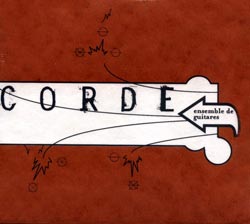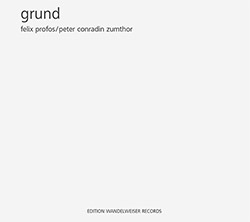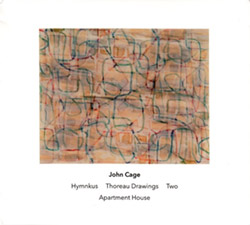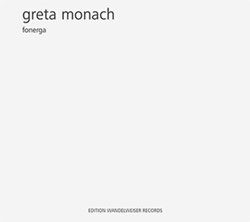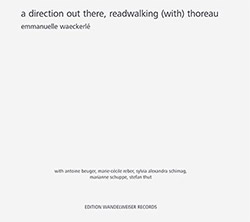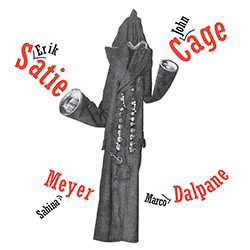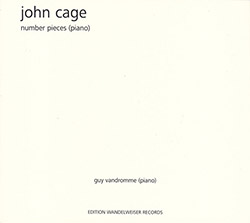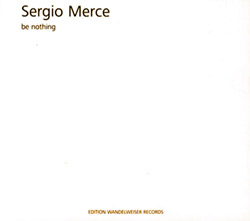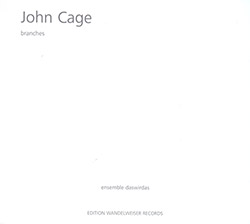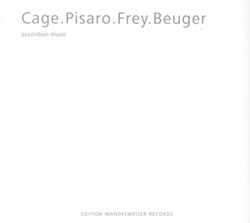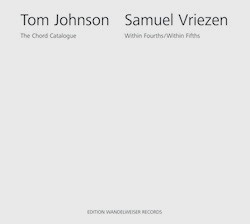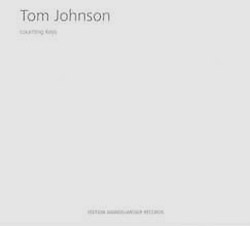![Cage, John: Empty Words [2 CDs] (Edition Wandelweiser Records) Cage, John: Empty Words [2 CDs] (Edition Wandelweiser Records)](https://www.teuthida.com/productImages/misc4/21826.jpg)
John Cage's "Empty Words" (1974) is drawn from the Journals of Henry David Thoreau, written in four parts: Part I omits sentences, Part II omits phrases, and Part III omits words. Part IV, which omits syllables, leaves us nothing but a virtual lullaby of letters and sounds.
In Stock
Quantity in Basket: None
Log In to use our Wish List
Shipping Weight: 2.00 units
Sample The Album:
John Cage-composer
Sylvia Alexandra Schimag-speaking voice)
Click an artist name above to see in-stock items for that artist.
UPC: 4011778041719
Label: Edition Wandelweiser Records
Catalog ID: EWR 1102/03
Squidco Product Code: 21826
Format: 2 MP3 CDs
Condition: New
Released: 2011
Country: Germany
Packaging: Cardstock 4 page foldover
Recorded in Dusseldorf, Germany in 2010 and 2011.
"Empty Words"
begins by omitting sentences,
has only phrases, words, syllables and letters.
The second part omits the phrases,
has only words, syllables and letters.
The third part omits the words,
has only syllables and letters. And the last part ...
has nothing but letters and sounds.
A mix of words, syllables, and letters obtained by subjecting the Journal of Henry David Thoreau to a series of I Ching chance operations.
What was interesting to me was making English less understandable.
Because when it's understandable, well, people control one another,
and poetry disappears.
A transition from language to music.
It's bewildering at first, but it's extremely pleasurable as time goes on. And that's what I'm up to."-John Cage
Artist Biographies
• Show Bio for John Cage "John Milton Cage Jr. (September 5, 1912 - August 12, 1992) was an American composer, music theorist, writer, philosopher, and artist. A pioneer of indeterminacy in music, electroacoustic music, and non-standard use of musical instruments, Cage was one of the leading figures of the post-war avant-garde. Critics have lauded him as one of the most influential American composers of the 20th century. He was also instrumental in the development of modern dance, mostly through his association with choreographer Merce Cunningham, who was also Cage's romantic partner for most of their lives. Cage is perhaps best known for his 1952 composition 4′33″, which is performed in the absence of deliberate sound; musicians who present the work do nothing aside from being present for the duration specified by the title. The content of the composition is not "four minutes and 33 seconds of silence," as is often assumed, but rather the sounds of the environment heard by the audience during performance. The work's challenge to assumed definitions about musicianship and musical experience made it a popular and controversial topic both in musicology and the broader aesthetics of art and performance. Cage was also a pioneer of the prepared piano (a piano with its sound altered by objects placed between or on its strings or hammers), for which he wrote numerous dance-related works and a few concert pieces. The best known of these is Sonatas and Interludes (1946-48). His teachers included Henry Cowell (1933) and Arnold Schoenberg (1933-35), both known for their radical innovations in music, but Cage's major influences lay in various East and South Asian cultures. Through his studies of Indian philosophy and Zen Buddhism in the late 1940s, Cage came to the idea of aleatoric or chance-controlled music, which he started composing in 1951. The I Ching, an ancient Chinese classic text on changing events, became Cage's standard composition tool for the rest of his life. In a 1957 lecture, Experimental Music, he described music as "a purposeless play" which is "an affirmation of life - not an attempt to bring order out of chaos nor to suggest improvements in creation, but simply a way of waking up to the very life we're living"." ^ Hide Bio for John Cage • Show Bio for Sylvia Alexandra Schimag "Sylvia Alexandra Schimag has made a name for herself through readings with texts by, among others, Ilse Aichinger, Oswald Egger, Gottfried Wanner, Rainer Maria Rilke, John Ashbery, Fernando Pessoa, Emily Dickinson, Lucrez, from Solomos, from Avatamsaka Sutra. She has worked regularly with composers such as Antoine Beuger, Jürg Frey, Eva-Maria Houben, Radu Malfatti, Michael Pisaro, Craig Shepard, Christian Wolff and Istvàn Zelenka, who have created works for vocals (alone or in combination with instruments) Have written. She has worked as a spokeswoman in art video productions like ParadiseNow! By Andrea Knobloch (2006) and Demand, Buoyancy and Waste. Or: the reverse of the garbage. By Joachim Eckl and Kurt Hennrich (2007). In 2011, Edition Wandelweiser Records released their complete recording of John Cage's Empty Words, one 10-hour piece for voice, on CD." ^ Hide Bio for Sylvia Alexandra Schimag
5/8/2024
Have a better biography or biography source? Please Contact Us so that we can update this biography.
5/8/2024
Have a better biography or biography source? Please Contact Us so that we can update this biography.
Track Listing:
CD 1
1. Part I 2:30:00
2. Part II 2:30:00
CD 2
1. Part III 2:30:00
2. Part IV 2:30:00
Compositional Forms
Avant-Garde
Spoken Word
John Cage
New in Compositional Music
Search for other titles on the label:
Edition Wandelweiser Records.






